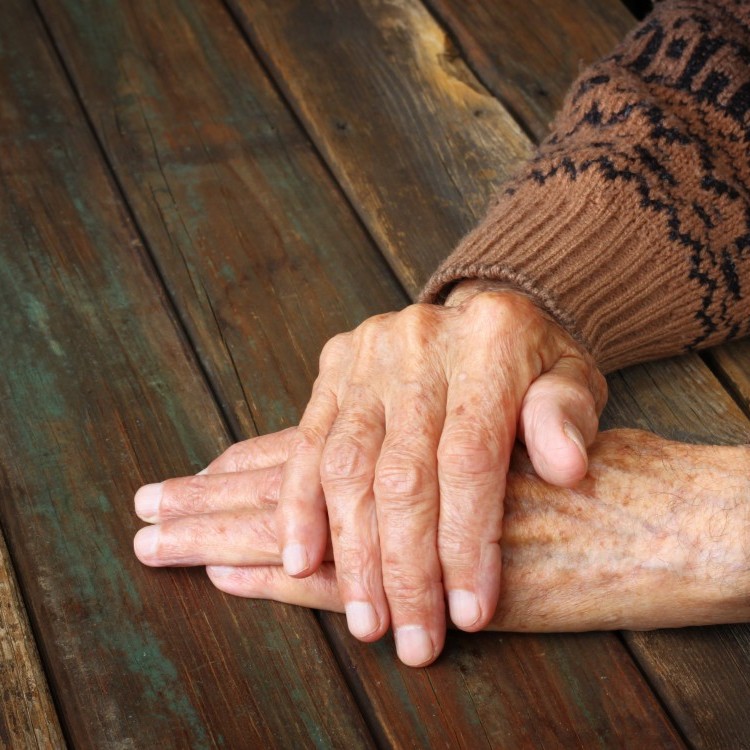Their future in our hands: clinical research in children
Children are not ‘mini adults’. That's why it is so important to conduct clinical research in children.
Why is it so important to conduct clinical research in children?
In the past, it was considered too risky to do clinical research in children.1 We all want to protect children: they are vulnerable, they depend on adults, and often, they cannot speak for themselves. But this has meant that doctors often had to give children medicines that had only been tested in adults.2, 3, 4 Why is this a problem? Children are not ‘mini adults’. Medicines are digested and absorbed into a child’s bloodstream at different rates and in different amounts compared to what happens in adults. Also, children are different from adults in regards to how much of the medicine gets to where it is needed and how quickly or slowly it leaves the body.1, 5, 6 These differences can mean that a medicine proven to be helpful in adults may have a different effect if given to a child – or it could even be harmful.7 Of course childhood is a period of change, including significant growth and development, so young children can be very different than older children, and therefore react differently: e.g., a four-year-old child might not react in the same way to a medicine compared to a twelve-year-old.7 We may think we can predict responses to medicines in children, but really we can’t without properly studying them.4 So… in our eagerness to protect children from untested drugs (which they would be exposed to as part of a clinical trial), we actually may have left them at greater risk in everyday medical practice from drugs that have not been tested in children. This means that doctors have had to guess what dose to give them (often by cutting up tablets or opening capsules)6 – and then just hoped for the best.4, 8 Scientists in the US have shown that if we rely on adult research findings to guide how to give medicines to children, we will be wrong almost half the time.9 There are also some diseases directly related to childhood that of course are not seen in adults. For many of these diseases no medicines are available at all because of reluctance to involve children in clinical research.1 A UK survey of 1000 people found that nearly 90% of them did not know that many medicines given to children are ‘unlicensed’ (not tested or approved to give to children), and once they found out about this, over 60% found this worrisome.10
We may think we can predict responses to medicines in children, but really we can’t without properly studying them.
How have attitudes to clinical research in children changed?
In 1964, a very important announcement called the Declaration of Helsinki made it clear that clinical research in children was ‘ethical’ – in other words, it was not wrong, uncaring or unfair, as long as there was a clear need for it and it was likely to make a useful contribution to medical knowledge.1, 6 But progress was very slow. It was not until 2002 that new laws came into force in the US making it much harder for drug developers to miss out studying their medicines in children. The European Union introduced similar laws a few years later. Then in 2006 the World Health Organization (WHO) joined forces with the big children’s charity UNICEF to launch a number of campaigns intended to encourage research in children. They drew attention to ‘missing’ medicines for childhood illnesses and to situations where existing medicines needed to be adapted for use in children (‘Make Medicines Child Size’).6 This included finding the right dose and developing ways of giving the medicine that were not unpleasant for children to take (e.g. flavoured syrups or tablets that dissolve in the mouth without water).6, 11 In 2008, The International Federation of Pharmaceutical Manufacturers and Associations (a worldwide organization that represents drug developers) set up a special team to work with the WHO in this area.6 There are many examples of the benefits of research in children. A particular success story is for childhood leukaemia. Figures from the UK show that, in 2005, over 80% of children diagnosed with leukaemia survived for at least 10 years, compared with only 27% in 1975 – a direct result of clinical research.7
How are proposals for studies of children decided upon?
All clinical trial proposals are considered in detail by an independent group called an ethics committee before they are allowed to go ahead. The committee – which includes general members of society as well as doctors and scientists – discusses whether the study may cause an unacceptable level of pain, worry, fear, stress, upset or risk to participants. Not surprisingly, studies for children are particularly carefully considered, but at the same time committee members know that they need to remember the potential value of the research for future generations.7 Research teams and ethics committees are now also beginning to invite children, teenagers and parents to take part in meetings and offer their personal opinions on proposed studies for children. Also, families are asked to give their feedback to study information materials like booklets and videos.7 Getting the input of young people early on is a valuable way to gain the perspective of the sort of people who will ultimately take part in a study. In fact, many countries have now set up networks of young people who can advise on planned studies for children.7
Action to protect the health of children has progressed more in the last ten years than in the previous fifty, giving us an optimistic view of the future.
What about consent?
Every clinical trial participant has to agree to take part via a process called ‘informed consent’. This means that the study is clearly and thoroughly explained to them and they decide to join of their own free will once they have understood what the study is aiming to achieve and exactly what will be involved. This is where things get complicated when it comes to research in children. Many children will not be mature enough to understand something as complex as a clinical study and will be unable to make choices on their own. Of course most teenagers will understand a lot more than young children and some may have fully formed views and preferences.7 From the point of view of the law, however, everyone under 18 is considered unable to make their own decisions; so, official informed consent is required from a parent or legal guardian to join a clinical trial.4 Still, involving the child in the decision-making process is very important. Getting the child’s agreement is a more informal process known as ‘assent’.1, 7, 8 Many clinical study teams now offer booklets, videos or websites that explain their study in simple, child-friendly language, sometimes with cartoons, drawings, quizzes and other techniques designed to appeal to children or adolescents.
Action to protect the health of future generations of children has progressed more in the last ten years than in the previous fifty, giving us an optimistic view of the future. Today we can see how the situation has started to change when it comes to childhood cancers for example, where clinical trials are the standard of care rather than the exception, and 60 % of cancer patients under the age of 29 are enrolled in a clinical study. 12
Sources:
- Medical Research Council. MRC Ethics Guide: Medical Research in Children 2004. Available from: www.mrc.ac.uk/documents/pdf/medical-research-involving-children/
- World Health Organization. Clinical Trials in Children. 2016 www.who.int/ictrp/child/en/
- National Institutes of Health. NIH Clinical research trials and you. 2016 www.nih.gov/health-information/nih-clinical-research-trials-you/parents-children
- U.S. Food and Drug Administration. Should your Child Be in a Clinical Trial? 2016 www.fda.gov/forconsumers/consumerupdates/ucm048699.htm
- Lu H, Rosenbaum S. Developmental Pharmacokinetics in Pediatric Populations. J Pediatr Pharmacol Ther 2014;19(4):262–276
- Finney E. Children’s Medicines, a Situational Analysis 2011. Available from: www.who.int/childmedicines/progress/CM_analysis.pdf
- Nuffield Council on Bioethics (2015). Children and clinical research: ethical issues. Available from: nuffieldbioethics.org/publications/
- Yeung V. Clinical Trials in Children. Chapter 6 in Paediatric Drug Handling ISBN 978 0 85369 686 5. Available from www.pharmpress.com/files/docs/paeditaric_sample_chapter.pdf
- NIH Medline Plus: The Importance of Children in Clinical Trials. Available from: www.nlm.nih.gov/medlineplus/magazine/issues/winter12/articles/winter12pg6-7.html
- Mukattash T, Millership J, Collier P et al. Public awareness and views on unlicensed use of medicines in children Br J Clin Pharmacol 2008; 66(6): 838-45
- WHO Expert Committee on Specifications for Pharmaceutical Preparations. Annex 5: Development of paediatric medicines: points to consider in formulation. WHO Technical Report Series no.970: 2012. Available from: apps.who.int/medicinedocs/documents/s19833en/s19833en.pdf
- St. Baldrick’s Foundation. The Road to Success: Clinical Trials and the Children’s Oncology Group. www.stbaldricks.org/blog/post/the-road-to-success-clinical-trials-and-the-childrens-oncology-group/




Comments